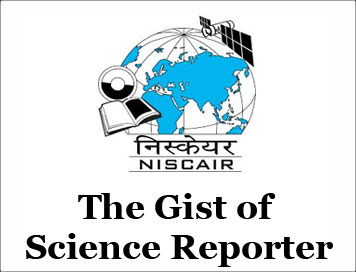NEW! The Gist (APR-24) | E-BOOKS |
(GIST OF SCIENCE REPORTER) C-CAMP A World-class Model : MARCH-2023
(GIST OF SCIENCE REPORTER) C-CAMP A World-class Model
(MARCH-2023)
C-CAMP A World-class Model
-
C-CAMP has different mechanisms to create such a nurturing ecosystem. It identifies and promotes early stage scientific ideas, extends funding, incubation, advancement and scale-up support, essentially providing the runway to deep science innovators and researchers to give flight to their ideas, commercialise them into products and create impact in society.
Highlights from an Enviable Portfolio
1. Bugworks:
- A drug discovery startup whose genesis was in 2013-2014 with a few scientists from India trying to address one of the 21st Century medicine’s impending public health challenges – antimicrobial resistance (AMR). This was a decade back when India was not considered to have the right infrastructure to develop a drug. Ten years later, Bugworks lead candidate can potentially be the first broad-spectrum gram-negative antibacterial discovered since the 1960s if its Phase 1 clinical trials end positively. BWC0977, their novel broad-spectrum antibacterial agent available in both IV and oral forms, will treat MDR infections. They have been selected as a game-changing start-up to watch out for across all sectors by global market analyst CB Insights in 2019. The entire R&D of Bugworks is headquartered out of C-CAMP supported by the ecosystem it has built in and around the Bangalore Life Sciences Cluster or BLiSC, India’s foremost biosciences research, translation and innovation campus.
2. Sea6 Energy:
- A deep science start-up with solutions in sustainability, agriculture, and clean energy that was supported by C-CAMP in 2013. They have a proprietary large-scale ocean cultivation technology for growing red seaweed and leveraging seaweed to create environmentally friendly products for agriculture, animal health, food, bioplastics, renewable chemicals and biofuel. More than five products have been commercialised across the US, Europe and India in the biostimulants, agri-input categories for enhanced crop productivity. They are a World Economic Forum start-up selected as one of the top eleven oceanic innovations globally for their oceanbased sustainable biomass cultivation that makes biofuel an increasingly likely possibility.
3. String Bio:
- A C-CAMP supported synthetic biology start-up with a difference. They have developed technologies with environmental, clean technology, nutrition, agriculture, and alternative protein implications.
- Their proprietary microbial and fermentation platforms convert methane – a potent greenhouse gas – into value-added solutions for animal nutrition, crop inputs and biodegradable polymers. Four products are in the Indian market in Animal Nutrition, Human Nutrition, and Agriculture domains. They were a winner of the Hello Tomorrow 2017 competition in Paris as the best deeptech Food/AgriculturThe Centre for Cellular and Molecular Platforms (C-CAMP) is helping set up an ecosystem that nurtures and catalyzes such deep science innovations in India in close collaboration with multiple government agencies such as the Department of Biotechnology, Department of Science & Technology-NSTEDB, Ministry of Electronics & Information Technology (MeiTY), Biotechnology Industry Research Assistance Council (BIRAC), and NITIAayog-Atal Innovation Mission. C-CAMP as an organisation aims to harness the phenomenal scientific talent and scientific potential that India already has and provide the ecosystem support deep science ideas (that are also inherently risky) need to transform them into technologies that touch lives, save lives, change lives.
- e start-up and are India pioneers in clean tech solutions.
4. Eyestem:
- One of the world’s top regenerative medicine start-ups with affordable stem cell therapy solutions to reverse vision loss in retinal degenerative illnesses like Dry Age Related Macular Degeneration, the largest cause of blindness among people above 65 worldwide and Retinitis Pigmentosa (RP). There are about 1.5 crore patients of Dry AMD in India alone.
- RP can lead to complete vision loss by the age of 25. There are about 15 lakh children in India with RP. Both are retinal degenerative disorders and are currently incurable. Eyestem’s product EyeCyte RPE addresses Dry AMD, through a scalable, robust, iPSC derived retinal pigment epithelium RPE cell platform that acts as a renewable cell source in allogenic settings to reverse vision loss.
- Pivotal efficacy and safety studies started at Oregon Health and Science University with First-in-Human application slated for 2023. With its affordable stem cell therapy platform technologies, Eyestem aims to bring cell therapy to the bottom 99% of the global population from the current 1% alone.
5. Pandorum:
- India’s first tissue engineering, Biomaterials, Regenerative Therapy start-up supported by C-CAMP since 2012 with a proprietary technology platform to create 3D functional tissues such as bio-engineered cornea & liver through self-assembly, 3D printing of cells, gels, cell modulators & biopolymers. They have also recently developed 3-D suturable corneal tissue and a unique hydrogel-based corneal stem cell delivery method to promote scarless healing of injured corneas addressing the huge supply-demand gap in corneal transplants in India. Pre-clinical animal trials are ongoing, and human clinical trials of bioengineered cornea are coming soon.
CLICK HERE TO DOWNLOAD FULL PDF
CLICK HERE TO DOWNLOAD UPSC E-BOOKS
Study Material for UPSC General Studies Pre Cum Mains
Get The Gist 1 Year Subscription Online
Click Here to Download More Free Sample Material
<<Go Back To Main Page
Courtesy: Science Reporter



